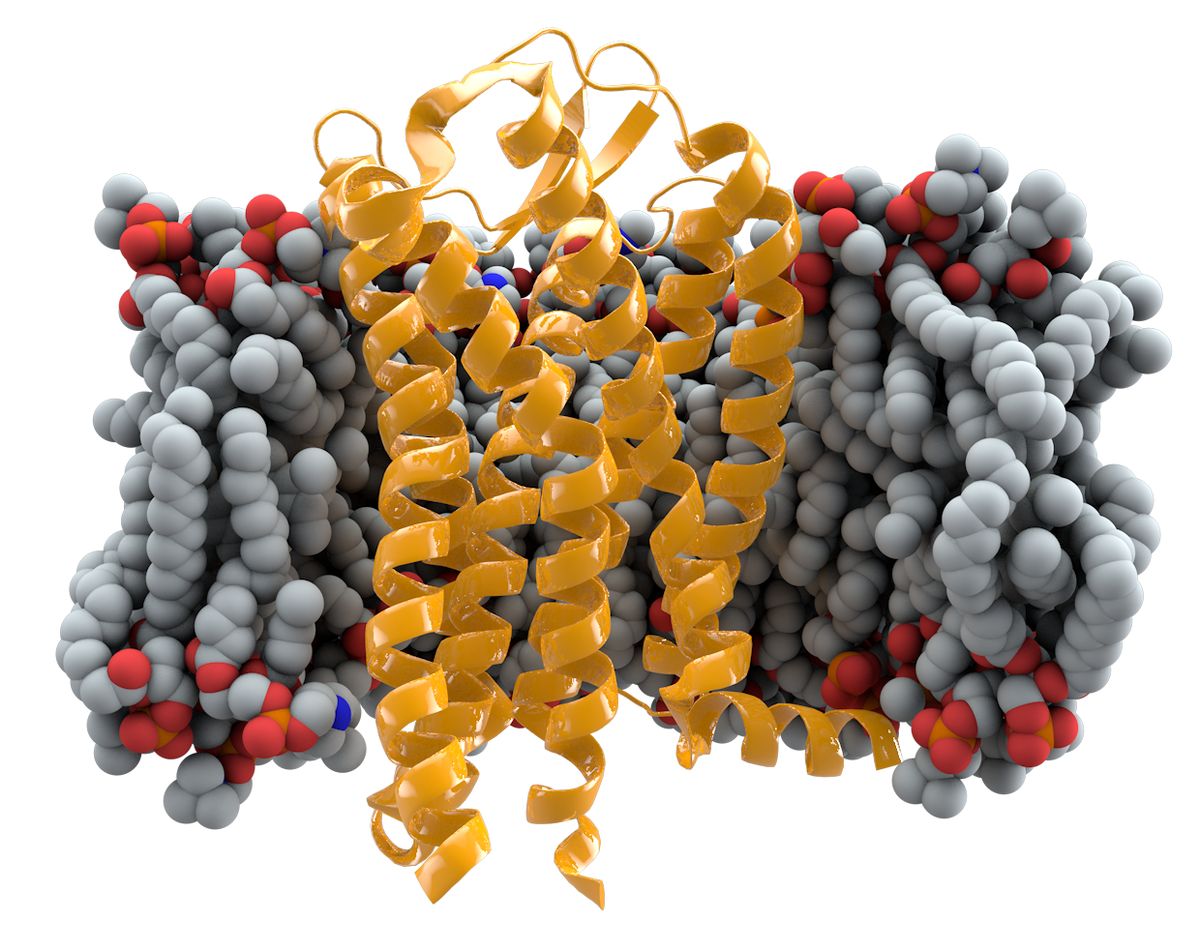
Thomas Splettstoesser/Wikimedia Commons
Rendering of a CCR5 receptor (yellow) in a cell membrane (grey).
A UCLA-led team of researchers studying the effect of the monoclonal antibody Leronlimab on long COVID-19 may have found a surprising clue to the baffling syndrome. Their finding, that an abnormally suppressed immune system may be to blame, contradicts their initial hypothesis, which was that a persistently hyperactive immune system could be the culprit.
The study, which was funded by CytoDyn Inc., the manufacturer of Leronlimab, and it was conducted by researchers who are either employed by or consulting with the company. The findings are published online in the journal Clinical Infectious Diseases.
"While this was a small pilot study, it does suggest that some people with long COVID may actually have underactive immune systems after recovering from COVID-19, which means that boosting immunity in those individuals could be a treatment," said senior author Dr. Otto Yang, a professor of medicine, division of infectious diseases, and of microbiology, immunology and molecular genetics at the David Geffen School of Medicine at UCLA.






